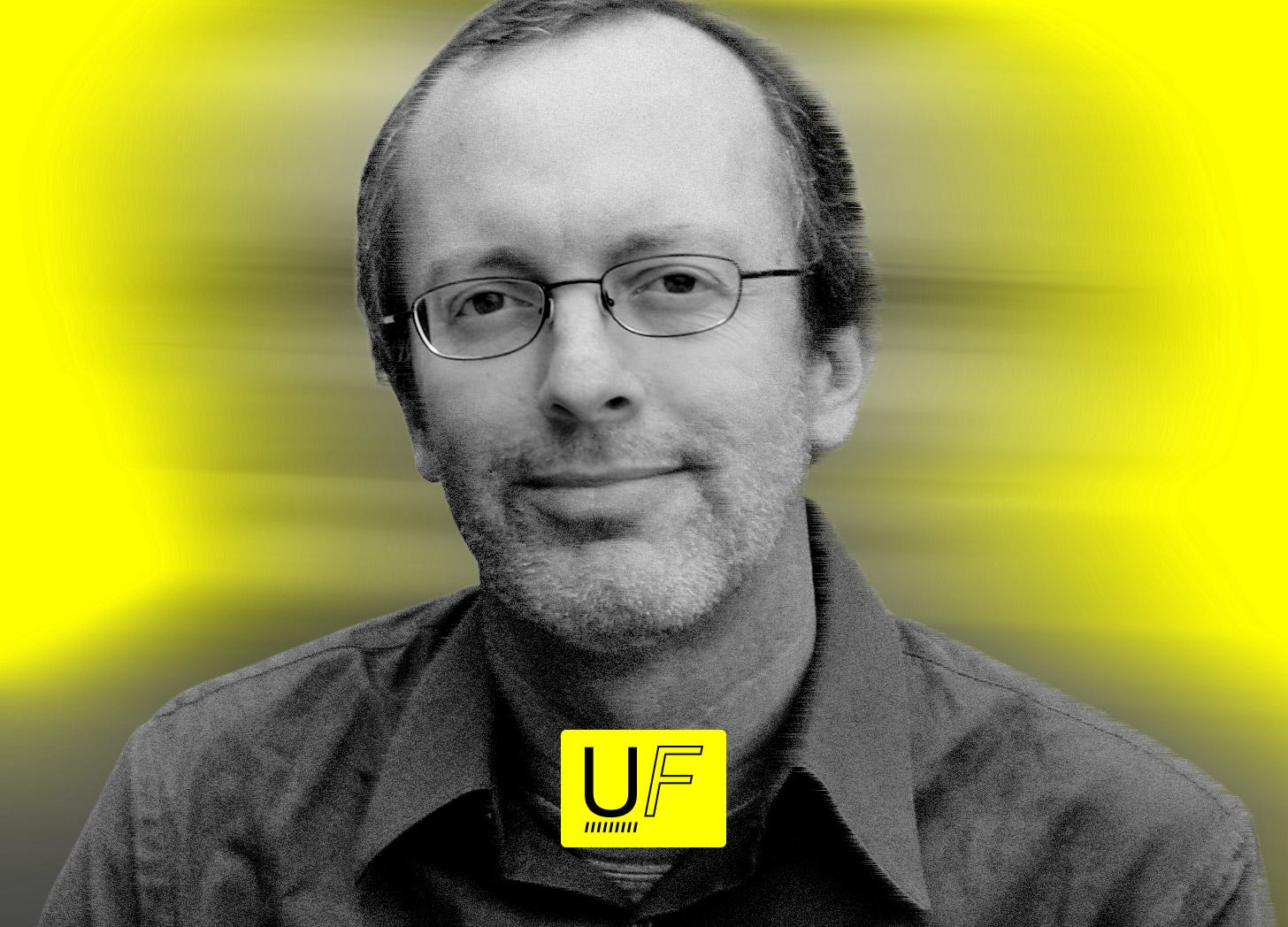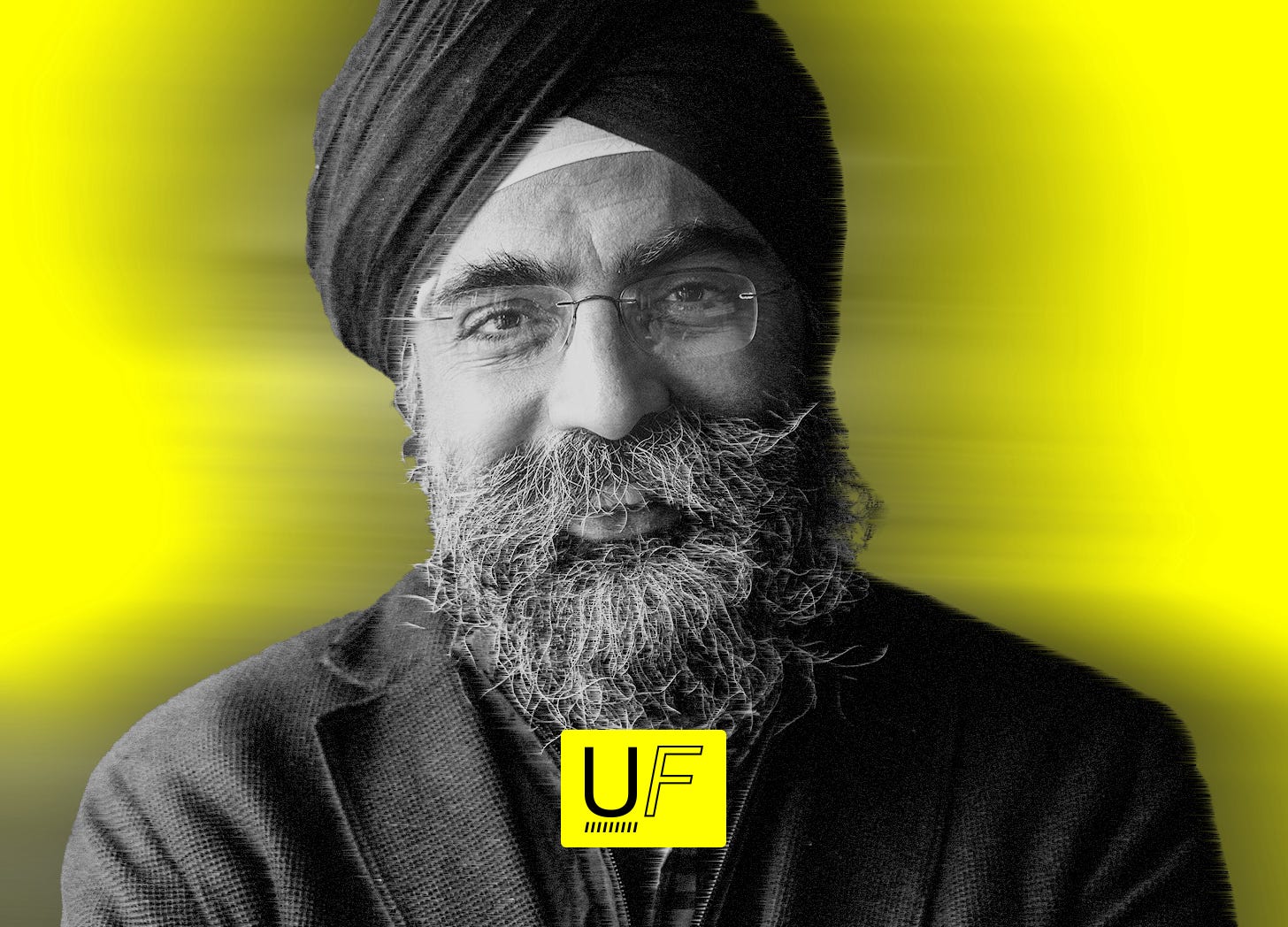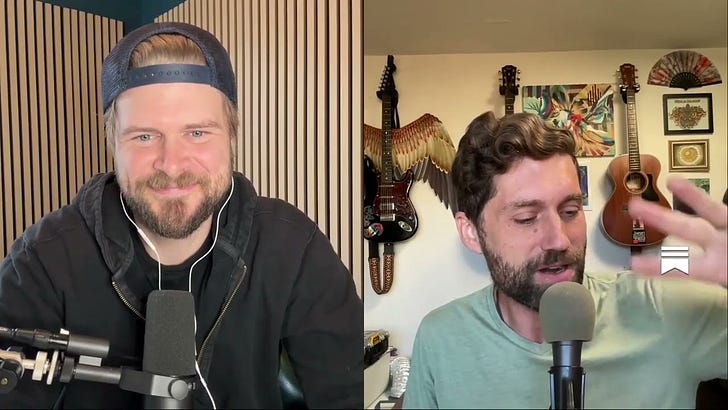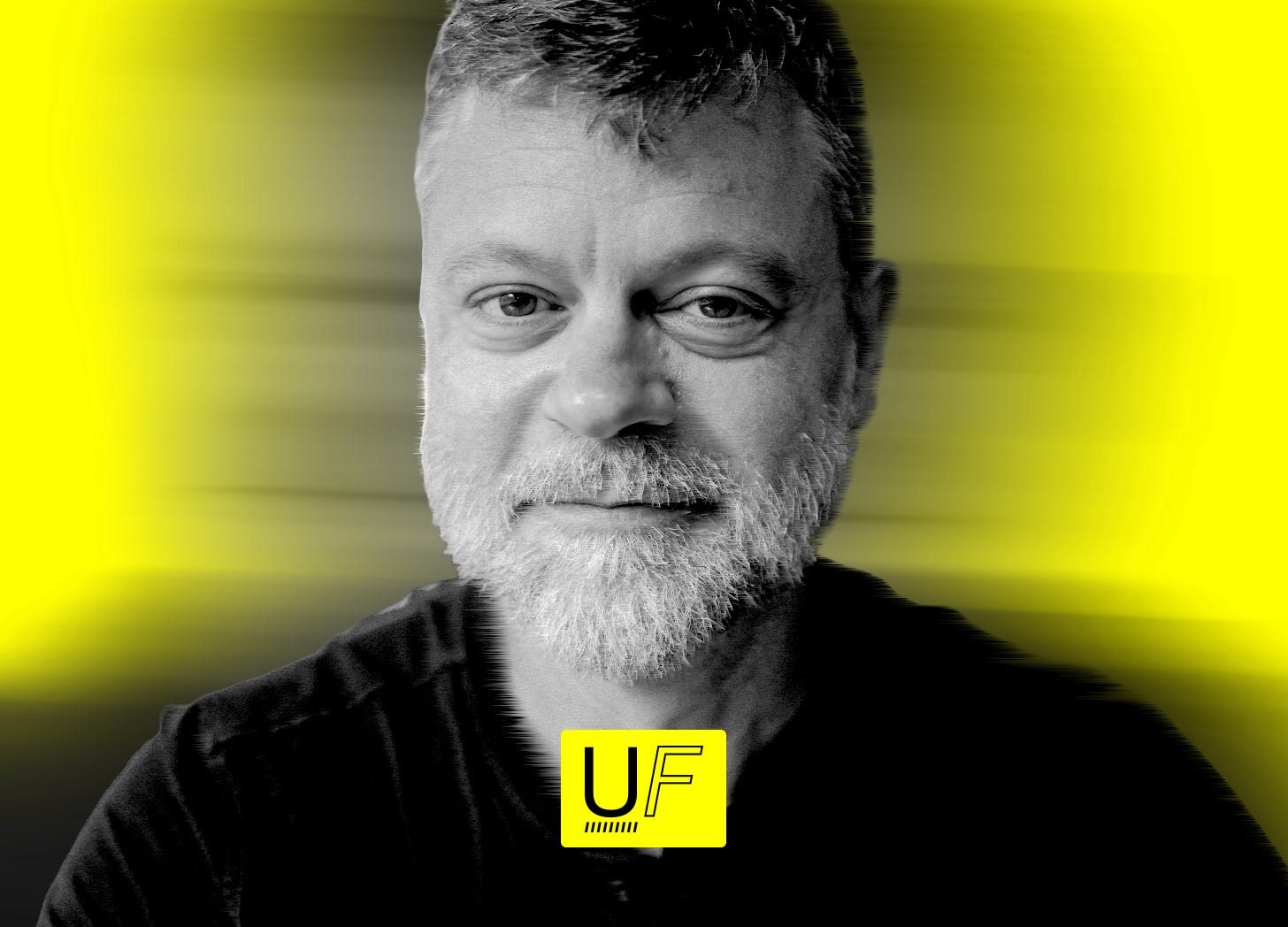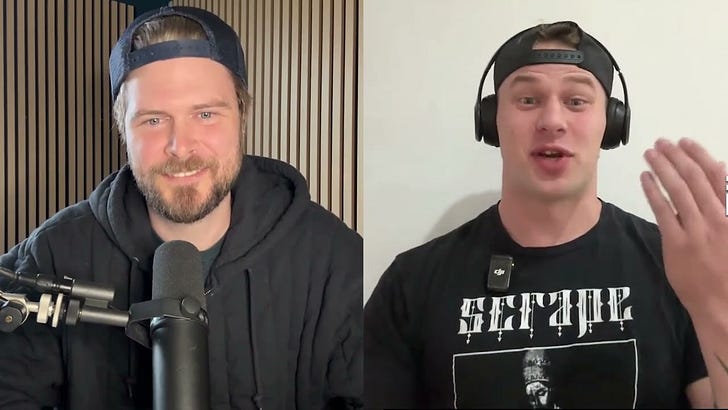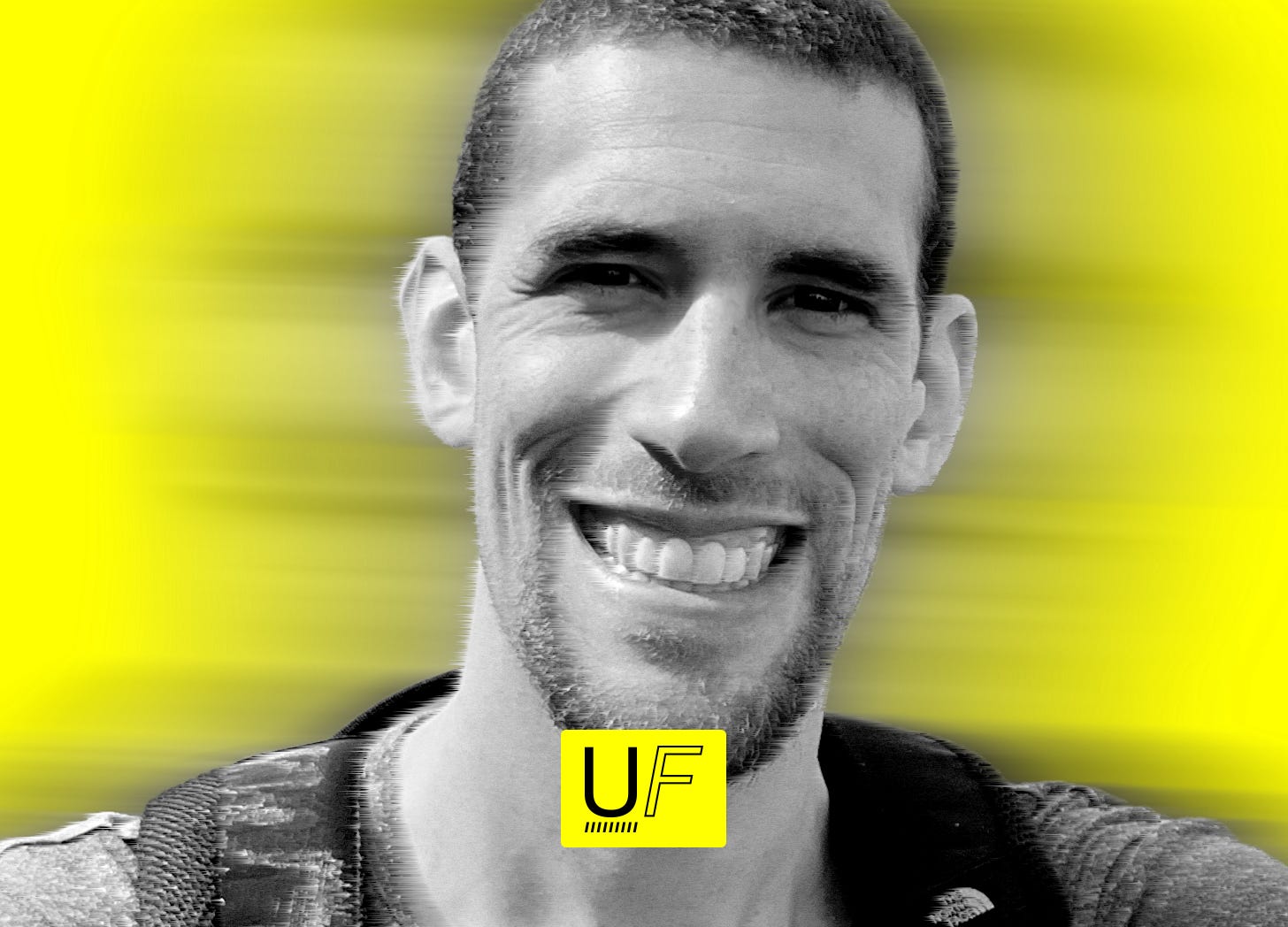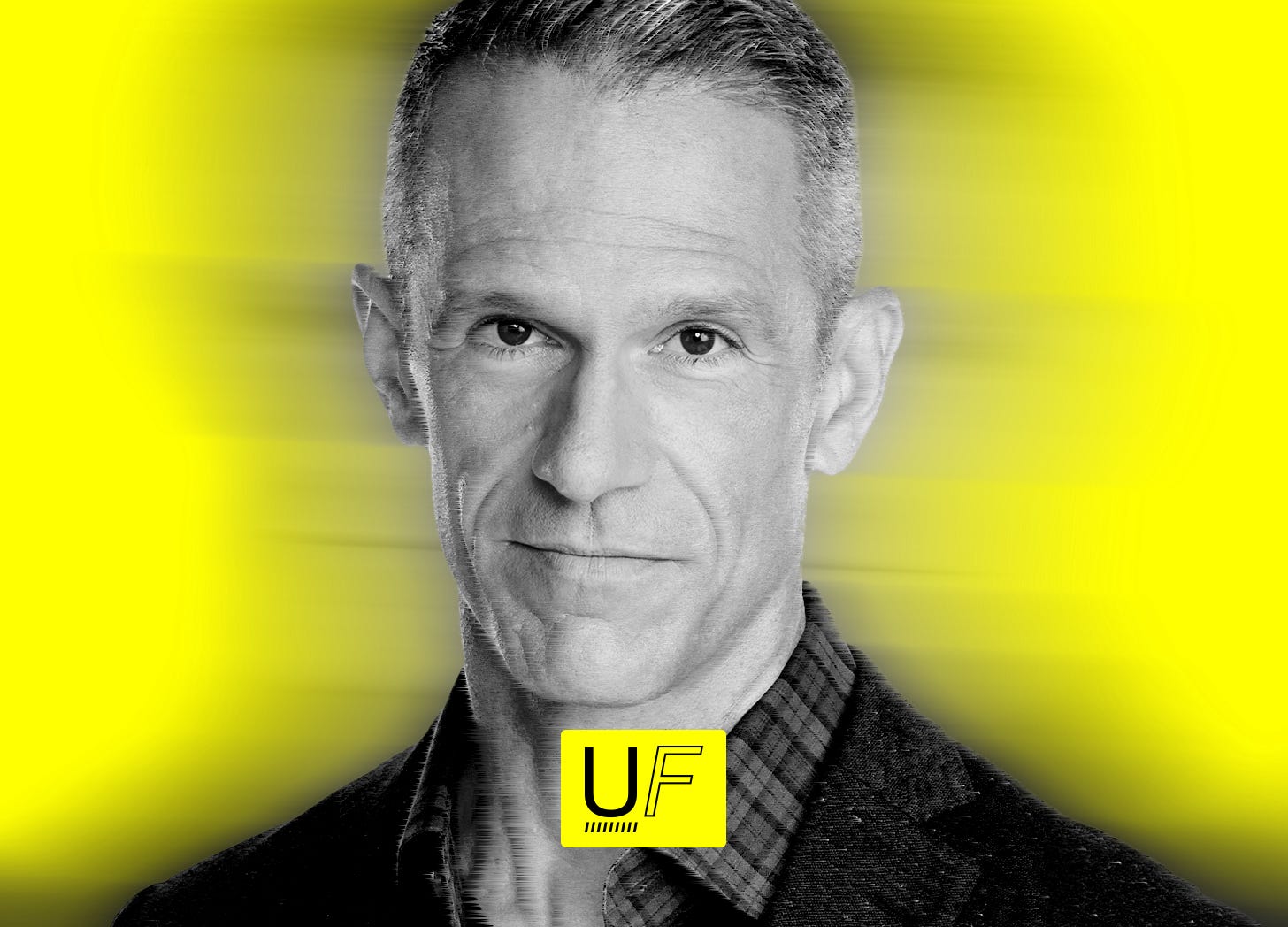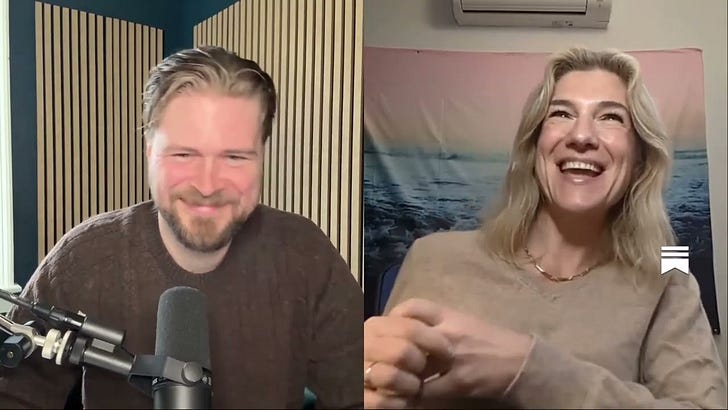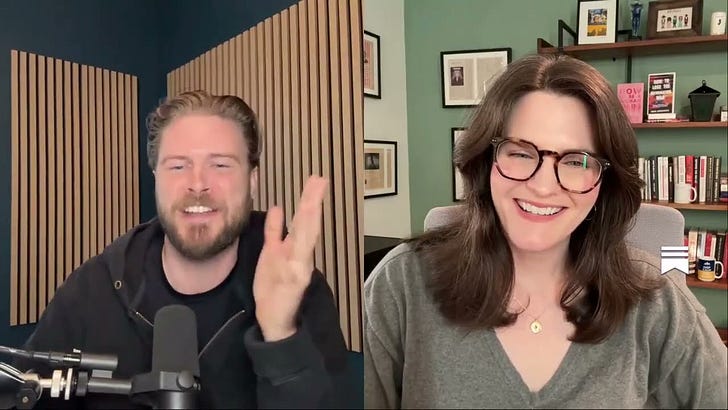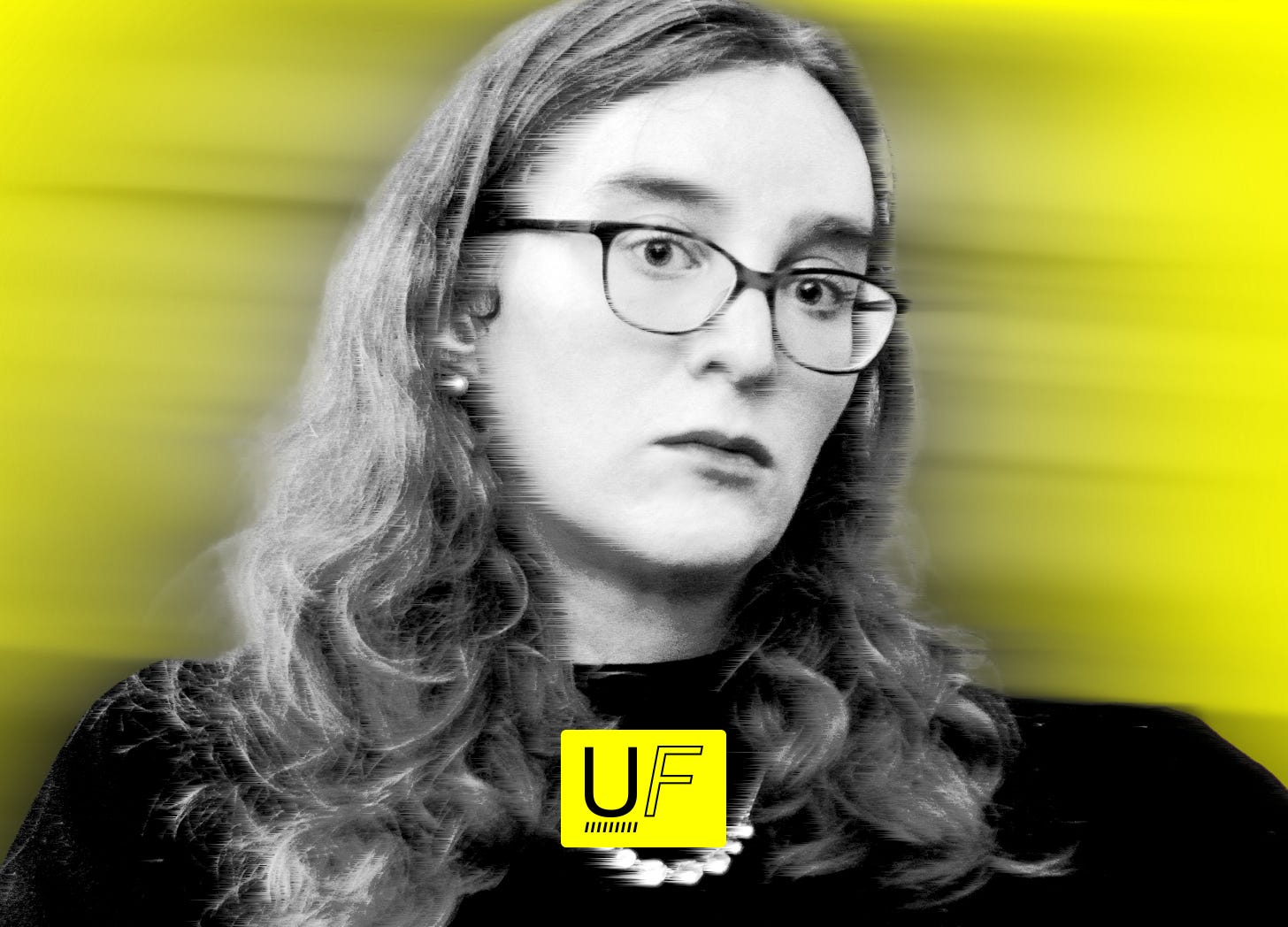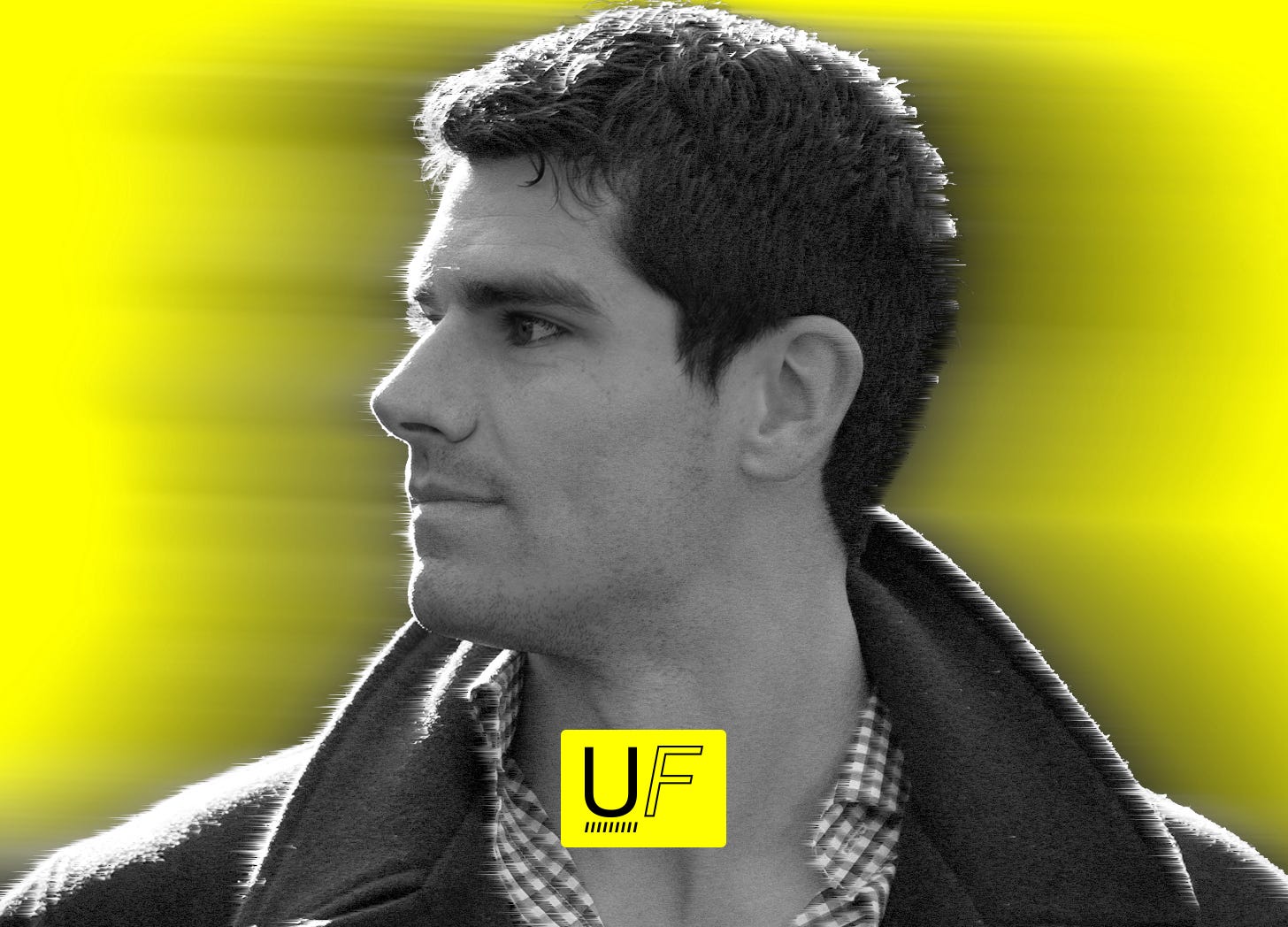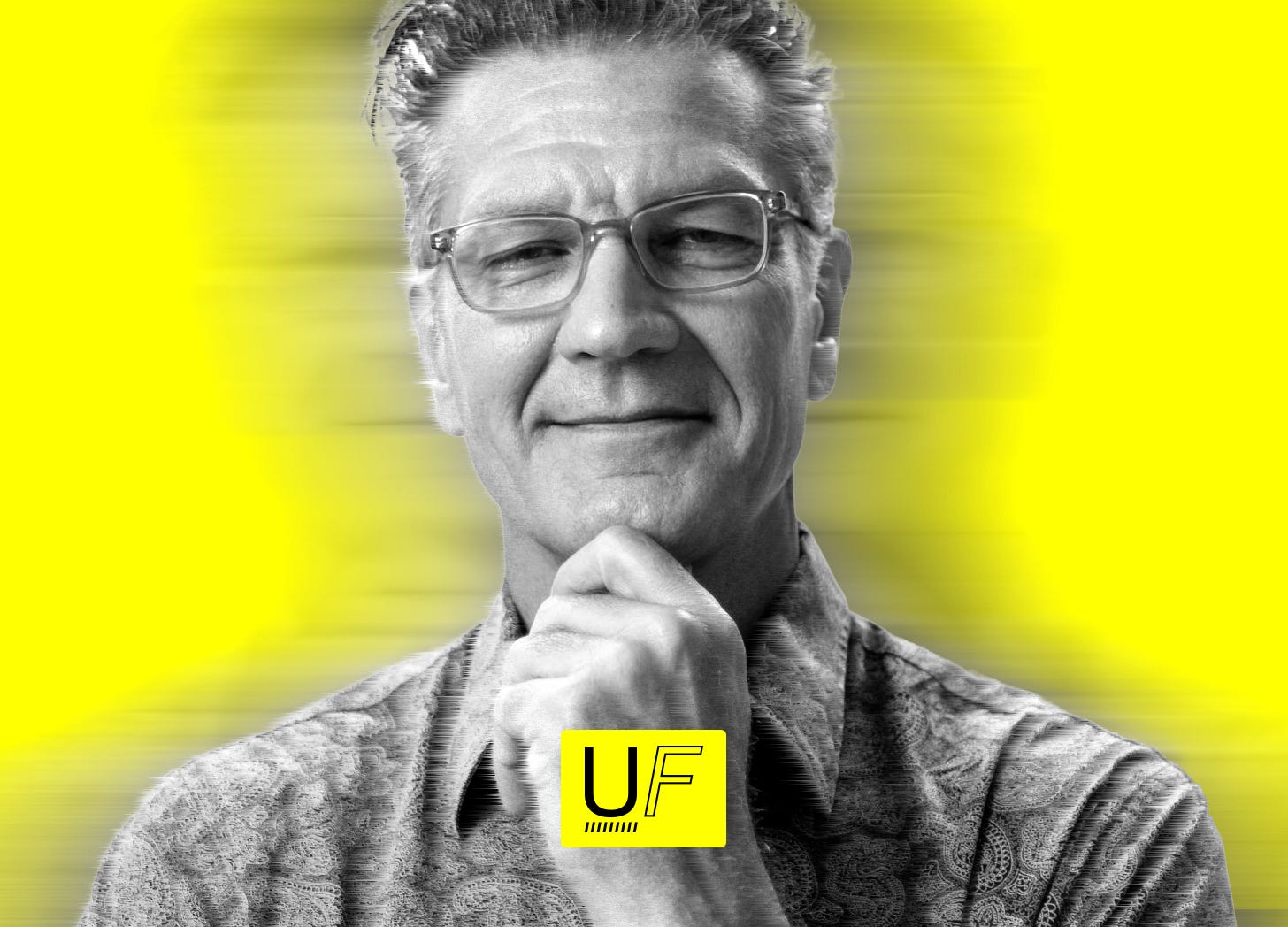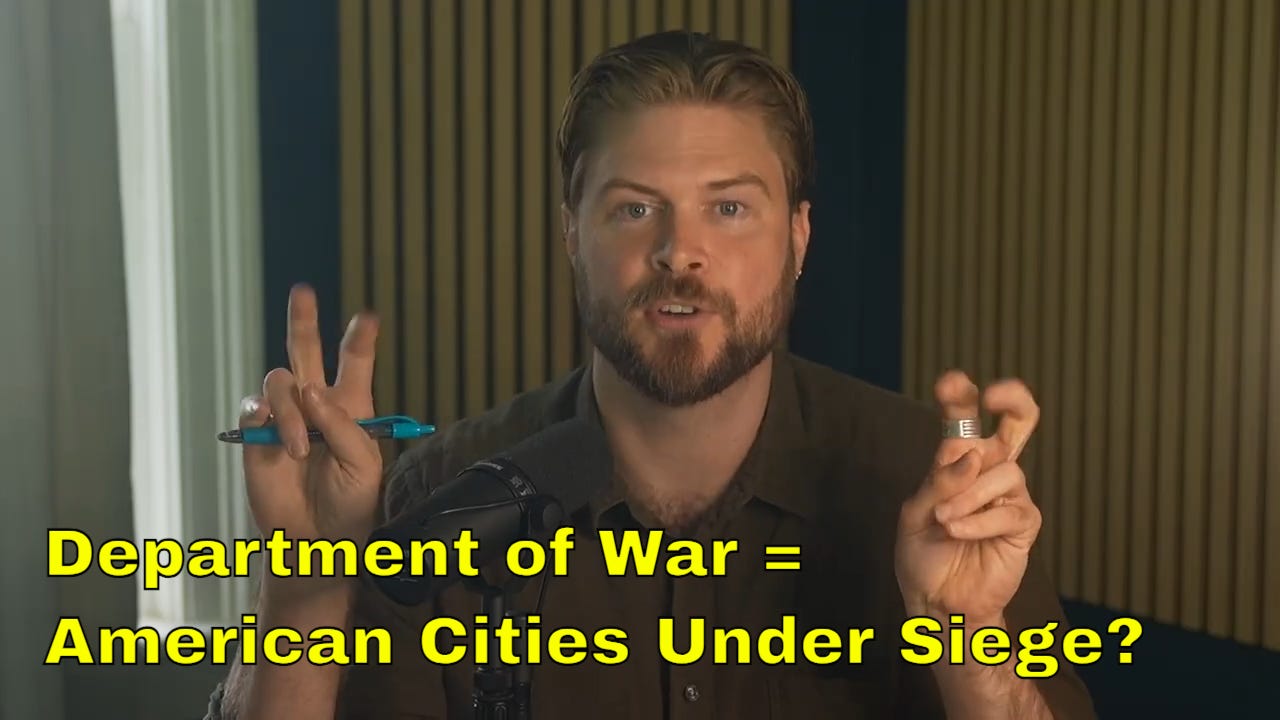Can Media Depict Reality in the Age of AI? Did It Ever, Really? Discussing the Interplay of Fact & Fiction in ‘Reality Frictions’ - Steve Anderson | #57
Description
A couple plot twists to note with this episode!
First: instead of my usual intro, you’ll notice we’re showing a clip from Steve’s new feature-length video essay/doc Reality Frictions. So I’d strongly recommend that you watch at least the first few minutes on Substack or YouTube. My hope is that doing it this way gives you the best context for what he and I dive into in our conversation. Moreover, I hope it whets your appetite to go see the film—it’s a nourishing and thought-provoking journey (the combination of Steve’s voice, cadence, ideas, and editing chops have a sort of ASMR-delight effect for my brain, and I’m sure I won’t be the only one).
Second: you’ll notice that this episode was filmed in my former Los Angeles location. We’ve actually been holding onto this episode a little longer than usual in order to time it to the LA premiere and—drum roll—that day is on the calendar! December 12. So for my dear Los Angeles audience, here’s the information:
UCLA Film & Television Archive and Los Angeles Filmforum present:
December 12 at the UCLA Film & TV Archive Billy Wilder Theater, the Hammer Museum
In person: Q&A with Steve F. Anderson, filmmaker and Associate Dean of Academic Affairs, UCLA School of the Arts and Architecture, moderated by Los Angeles Filmforum programmer Diego Robles.
More info at UCLA Film & Television Archive or Los Angeles Filmforum.
Support the show by checking out: ProtonVPN (gold-standard VPN—fast and safe. Click the link to get 55% off VPN Plus: $4.49/mo). ZBiotics (Decrease impact of hangovers. Code: JESSEDAMIANI for 10% off), MUD\WTR (43% off starter kits), 1Password (simplify your life and increase digital safety), Mission Farms CBD (healthy, effective CBD for relief, sleep, and wellbeing—25% off with email).
As filmmaker Thom Andersen demonstrates in the iconic video essay/documentary Los Angeles Plays Itself—and in fact, as you’ll hear in the conversation, Steve worked with Andersen!—locals can easily be pulled out of a movie’s car chase when the on-screen geography doesn’t match the actual layout of the city. Inspired by this blend of authenticity and illusion, Anderson examines the “intersection of fact and fiction on Hollywood’s screens,” which gives way to a broader analysis of this interplay. How do screen representations shape reality? Likewise, what happens when reality intrudes on screened depictions?
Of course, this is a conversation that cannot not look at the emerging wave of AI-generated imagery and video. Mind you, we recorded this episode before Google’s Veo 3 and OpenAI’s Sora 2 were launched, and still, Steve’s sense of things is spot-on, grounded in a long view of how media has always been a means of constructing rather than merely depicting reality. Thus, the question of “Capital-T Truth” in film, while perhaps a rich intellectual discussion, is in many ways a misguided one, or misses what’s really at work.
We also touch on the importance of digital commons, drawing from Steve’s work with Critical Commons, as well as ideas drawn from his various prior books: Technologies of Vision, Technologies of History, and Reclaiming Popular Documentary. In a moment when the subject of visual representations of reality has never held more societal import, I’m sure you’re going to appreciate this rich, wide-ranging conversation, so get to it!
BIO: Steve F. Anderson is a scholar-practitioner working at the intersection of media, history, technology and culture. He is currently a Professor of Digital Media at the UCLA School of Theater, Film and Television and Associate Dean for Academic Affairs in the UCLA School of the Arts and Architecture. He is the author of Technologies of Vision: The War Between Data and Images (MIT 2017) and Technologies of History: Visual Media and the Eccentricity of the Past (Dartmouth 2011) and co-editor of the anthology Reclaiming Popular Documentary (Indiana 2021). Anderson is also the founder of the appropriation-friendly public media archive Critical Commons and co-PI on the electronic authoring platform Scalar. His recent creative work includes the mixed reality installation Live-VR Corridor (2021), which won the award for Best Mixed Reality at the New Media Film Festival and premiered internationally at the Beijing International Film Festival. His feature-length video essay Reality Frictions premiered at the Madrid International Film Festival in 2024. He received a Ph.D. in Film, Literature and Culture from USC and an M.F.A. in Film and Video from CalArts.
Find more episodes of Urgent Futures at: youtube.com/@UrgentFutures.
Get full access to Reality Studies at www.realitystudies.co/subscribe

